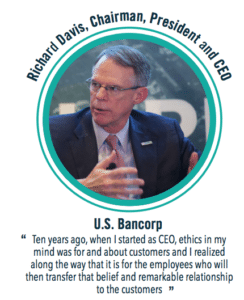A common concern of compliance officers and General Counsel today is that employees do not report misconduct for fear of retaliation, despite an emphasis on a company’s non-retaliation policy coming from senior leadership at a regular frequency. The absence of this information reaching th e appropriate channels can cause potentially significant troubles down the road for a company.
e appropriate channels can cause potentially significant troubles down the road for a company.
What’s now become clear is that while tone at the top matters, middle managers have an increasingly important role as key players in shaping organizational culture by emphasizing the need for their direct reports to feel comfortable in identifying and reporting misconduct.
- Companies need to develop strategies to support managers
- Middle management risks are falling into a “regulatory blind-spot”
- Ethics can serve as a differentiator, competitive advantage, and performance enhancer
“Communicating to employees that it’s okay to speak up is critically important and it has to come from middle management,” said Tom Tropp, Corporate Vice President, Ethics and Sustainability, Arthur J. Gallagher & Co., during the panel discussion on creating an open reporting culture. “It has to be dictated from the top but executed from the middle.”
Want more? Download the full booklet here.
Check out our YouTube Channel for videos from the 2016 Global Ethics Summit. Pre-register now for 2017!



